Geopolitically, historically, and socially, Ukraine stands at the “gates of Europe,” as Serhii Plokhy wrote. The 2014 Maidan Revolution opened those gates, closed for centuries by empire, iron curtain, and oligarchy. The question now is keeping them open, and determining the direction Ukraine itself will evolve.
On July 20, the assassination of a well-respected journalist in Kyiv shook post-revolutionary Ukraine in a way that even the war a few hundred miles away could not. Killed by a car bomb in the city center, Pavel Sheremet lived the liberal-democratic ideals that inspired the 2014 EuroMaidan. The Revolution had dramatically demonstrated that Ukrainians were adopting not only a new national identity, but a new kind of identity altogether: rather than defining themselves as non-Russian, non-Polish, non-Soviet, those who came out onto the Maidan exchanged a negative identity for a positive one — Europeans who believe in liberty, equality, and the rule of law.
The question now before the country is whether the government and the rest of the Ukrainian people are willing to embrace that identity — or even capable of embracing it. The government is seen as too slow and less than honest in delivering on its promises of Western-style reforms. Ukraine still has hope that it might one day succeed in overcoming both its Soviet past and the legacy of expansive oligarchic influence. For many Ukrainians, the best way to surmount these obstacles is reintegration with Europe. Enthusiasm for Europe in Ukraine — where 67% support joining the EU — contrasts sharply with Western Europe’s growing euroscepticism. Ukrainian society’s incremental but steady push toward liberal-democratic values stands in strong contrast to the strength of reactionary political groups in Austria, France, Switzerland, the Netherlands, and elsewhere. In fact, only 6 of 424 Members of Ukraine’s Parliament are affiliated with the far right. In Switzerland, the far-right populist Swiss People’s Party was the largest vote-getter in the 2015 elections, winning 29.4%, while the Austrian far-right Freedom Party candidate lost the recently overturnedelection by less than one percentage point. In fact, according to the Chief Rabbi of Ukraine Yaakov Dov Bleich, Ukraine has not seen the sharply rising frequency in anti-semitic attacks that Western European countries have.
That said, care must be taken to ensure that the country does not suffer a roll-back similar to the one following the Orange Revolution, or follow the path of Europe’s “illiberal democracies.” After all, Ukrainians still have some disagreements over liberal-democratic values, and political parties tend to be oligarch-oriented and clannish, lacking an identifiable ideology. In addition, Russian military aggression has brought about a new wave of nationalism that portrays Russia as the universal bogeyman that is to blame for all of Ukraine’s internal problems. Political and economic troubles are reflected in worrying trends in social norms, such as increasing polarization over LGBTI rights. A quick trip to Ukraine will convince the reader that most strata of Ukrainians feel no sense of ownership over society or their own future. Transparency Internationalreported in 2015 that corruption in Ukraine was the worst of all European countries.
At the core of these problems may be a lack of social trust and cohesion among Ukrainians. “Social cohesion” helps drive the creation of small and medium-sized businesses, promotes innovation and research, increases education and skill levels, and boosts inter-regional travel. Unfortunately, in 2010 Ukraine’s inter-group social cohesion ranked 134th in a survey of 158 countries.
This may be reflected, observers note, in the fact that today’s descendents of the Homo sovieticus have a tendency to see people as “the other” if they fall outside some particular notion of the genos and the ethnos. Since the war began in Ukraine’s easternmost regions in 2014, people on both sides of the conflict portray those on the other as not being the “true Slavs.” That said, it is important to separate this ethnic “othering” from the question of language in Ukraine. Ukrainians show no animosity toward Russian speakers, since the vast majority are Russian speakers themselves. In fact, an apt analogy can be drawn with a more familiar example: the Russian language is to Ukraine what English is to Ireland. But since Russian and Ukrainian are roughly mutually intelligible, it’s common to overhear conversations in which one speaker uses Ukrainian, the other Russian. Timothy Snyder, professor of history at Yale University, writes that when it comes to language, “no country in Europe is more cosmopolitan than Ukraine.”
Geopolitically, historically, and socially, Ukraine stands at the “gates of Europe,” as Serhii Plokhy wrote. The 2014 Maidan Revolution opened those gates, closed for centuries by empire, iron curtain, and oligarchy. The question now is keeping them open, and determining the direction Ukraine itself will evolve.
Peter Zalmayev is director of the Eurasia Democracy Initiative, a New York-based NGO, a member of the board of the American Jewish Committee and media outreach coordinator for the Ukrainian-Jewish Encounter (Toronto). Mykola Murskyj, a Master in Public Policy candidate at the Harvard Kennedy School of Government, is a student researcher at the Belfer Center for Science and International Affairs and a summer researcher at the Kyiv-based think tank VoxUkraine.
Origin – thehill.com


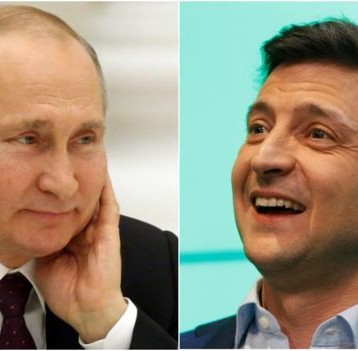
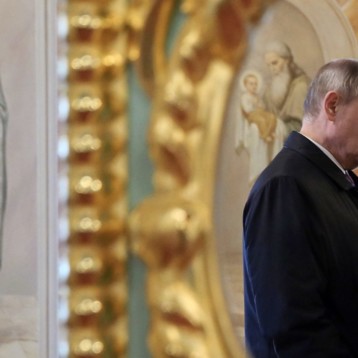
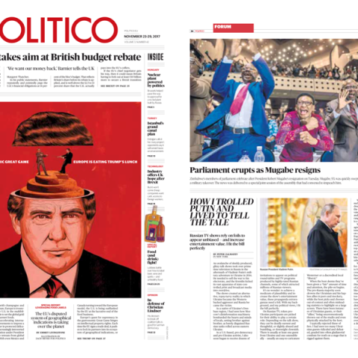
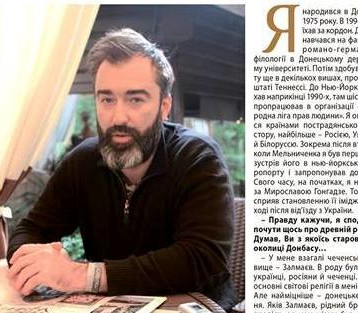
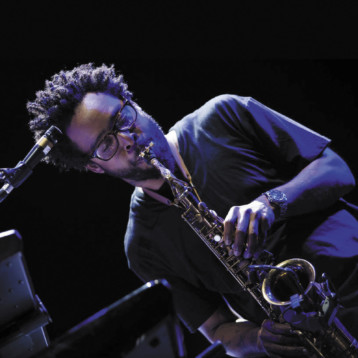
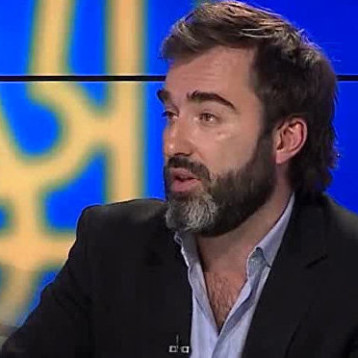
You must be logged in to post a comment.